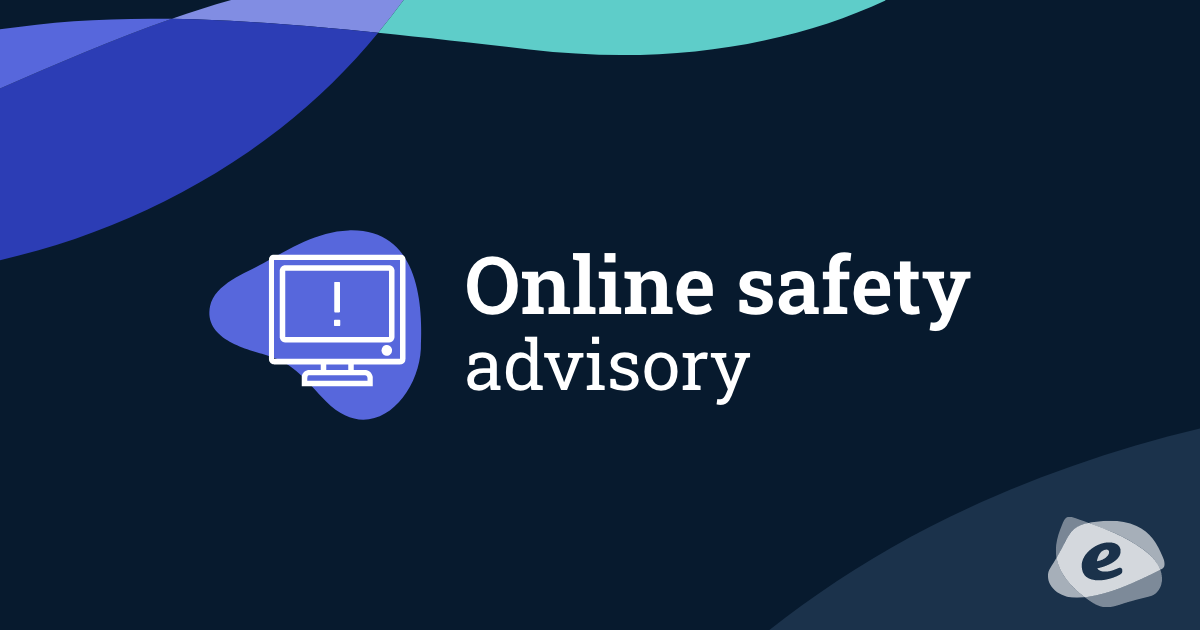
Dear principals and teachers,
Thank you for all the work you and your colleagues are doing during the COVID-19 pandemic to lessen the anxiety of your whole community. As students enter this new world of online learning, never has online safety been so important.
Given the changing environment we are currently living in, eSafety is focused on providing the most up to date material about maintaining online safety. Our home page now has a direct link to our latest information relevant to COVID-19.
I encourage you to read eSafety’s COVID-19 related blogposts:
- An online safety kit for parents and carers
- Protecting children from online abuse
- Keeping schools and learning safe online
All have links to useful resources for students, teachers and parents, as well as guidelines for effective child protection. The eSafety website also has information about helping children to develop good habits and supporting them while they are online.
Students and educators
Currently, online safety for students is addressed at many levels through the Australian Curriculum. eSafety provided input to ACARA’s recently developed online safety curriculum connection. This new resource is a guide for educators to identify content in the Australian Curriculum that supports the teaching and learning of online safety. eSafety has also developed a range of classroom resources that support the curriculum.
We offer professional learning for educators and our new 2 hour accredited (NESA and TQI) webinars ‘Online safety module – risks and protective factors’, start on the 8th April 2020. These will be delivered throughout Terms 2 and 3 and eSafety encourages all teachers to participate.
We also endorse providers of online safety education for in-school training – some of which have capacity for online delivery. The endorsement is a rigorous process, so schools can select a Trusted eSafety Provider with confidence, knowing they have met a range of mandatory requirements.
Whole community engagement and education
eSafety has developed a toolkit to assist schools in preventing and responding to online safety issues, including advice on how to upskill students and educators and how to engage parents and the community. It is recommended that you use the online safety self-assessment tool to assess your school’s online safety environment. It provides tailored suggestions to help schools improve practices, whatever stage they are at currently.
Parents and carers
Our parent pages have a wealth of resources and an Online safety guide for parents and carers which covers the main issues. We are also running parent webinars throughout April – parents can register for one now. I have written an open letter to all Australian parents and carers that you may wish to share with your school community, letting them know about the support and resources offered by eSafety.
Coming soon
eSafety is developing more resources, including virtual classrooms for children, to support educators, parents and students in the coming weeks and months. Sign up to our newsletter, visit our Twitter and Facebook pages and read our latest blogposts to get updates.
Meanwhile, please take a moment to explore the huge range of advice and resources at our national online safety hub, esafety.gov.au – we have programs tailored for all ages.
eSafety Commissioner resources
- Check The eSafety Guide for online safety information about popular social media, apps and games, including links for reporting abusive content.
- Learn how to report cyberbullying, image-based abuse and other illegal content.
- Show your students how to contact Kids Helpline.
eSafety programs
- eSafety Parents — Advice for parents and carers to help children have safe experiences online.
- eSafety Early Years — Practical advice to tackle the key online safety issues for children from birth to 5 years old.
- eSafety Kids — A platform for kids to learn about online safety in a way they can relate to.
- eSafety Young People — A platform for older children to learn about online safety in an environment that appeals to them.
- eSafety Educators — Online training and resources for teachers, schools and communities.
- eSafety Women — Empowering women to take control against online abuse.
- eSafety Seniors — Online safety advice, tools and support for older Australians.
The safety and wellbeing of Australian children and young people is paramount, so I hope this information is helpful to you.




